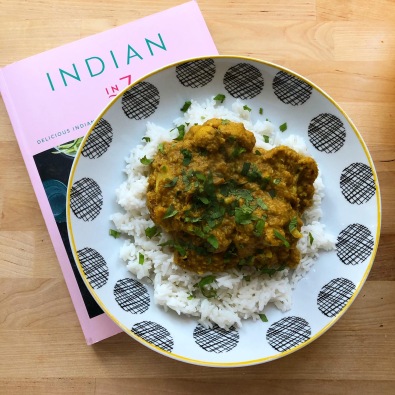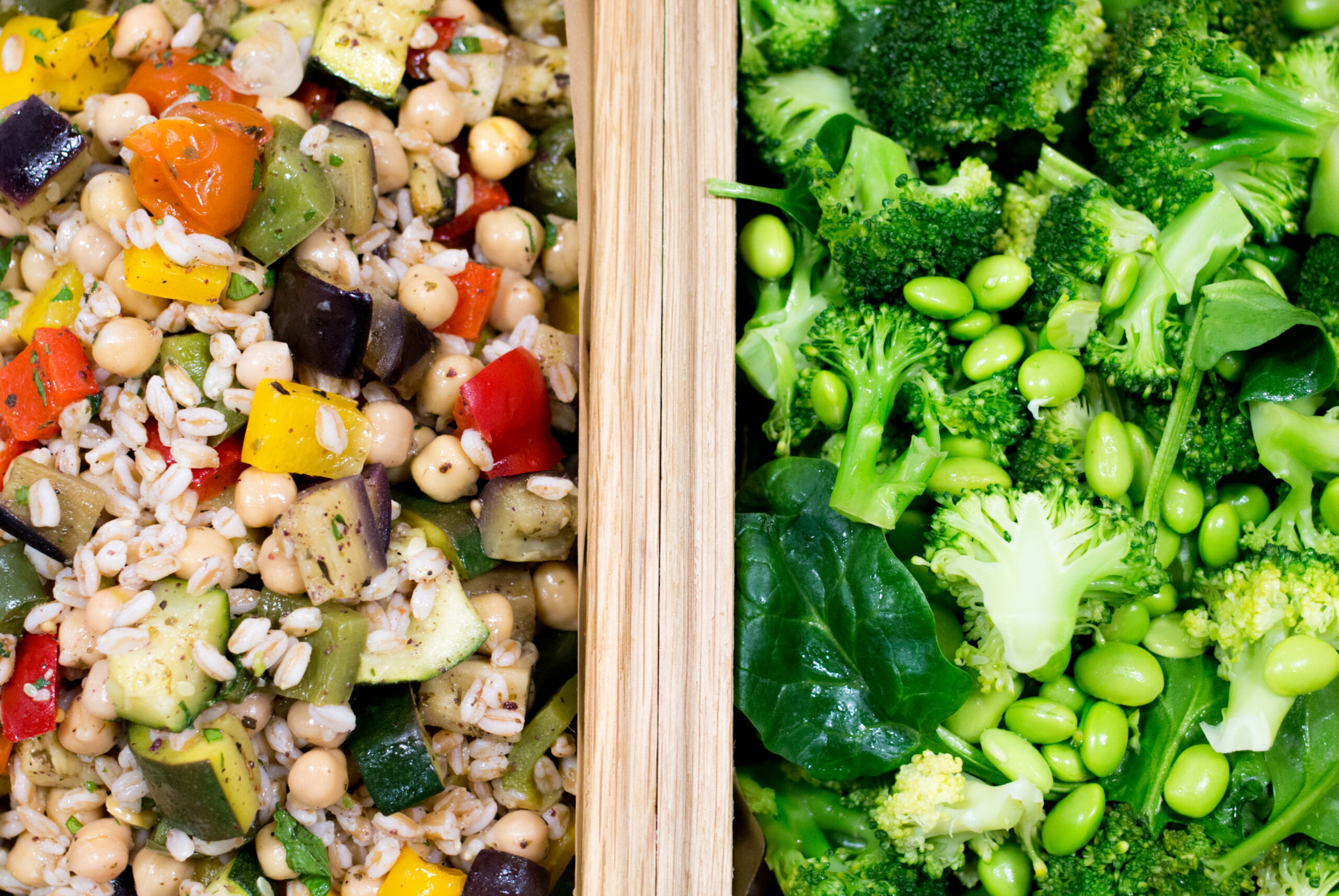This year, National Vegetarian Week ran from 11th to 17th May 2020 and aimed to highlight to the public the benefits and pleasures of a meat-free diet and that vegetarian food can be vibrant and exciting to eat.
The challenge is endorsed by the National Vegetarian Society who say, “It’s an unusual time at the moment, but it’s also a chance to have a go at something new and enjoy cooking at home”. They offered a free ‘recipe card’ which had a new and easy vegetarian meal to try each day, supported by the likes of Stephen Fry, Chris Peckham, the Hairy Bikers, Joanna Lumley and Matt Pritchard.
Meals included a sweet potato burger with vegan cheese and smoky relish (courtesy of BOSH!), a pita ‘kebab’ with plant-based kebab ‘meat’ fried with vegetables and served with crème fraiche (courtesy of Oumph!) and a classic country pie with roast potatoes and gravy (courtesy of Linda McCartney).
Some of our Venues Team decided to take part in the vegetarian week challenge and try their hand at some meat-free cuisine.
Alex says “I really wanted to get involved with National Vegetarian Week as I have been making much more of a conscious effort to reduce the amount of meat in my diet for environmental reasons and this was a great way to do that. I spent lots of time looking at what recipes I could try and found some new favourites I will definitely be making over and over. I think if you spend the time to make veggie dishes exciting, they can be more delicious and more interesting than meat dishes! After doing this it has also shown me that I can definitely work more vegetarian meals into my diet and still be excited about them.”
Some of Alex’s dishes included falafel and tzatziki pittas and cauliflower curry.

So why is eating less meat important?
It’s no secret that the planet is heating up and so by replacing meat and protein with vegetarian alternatives (such as nuts, seeds, beans and lentils) we can reduce carbon and greenhouse gas emissions.
More agricultural land is used to raise cattle than all other domesticated animals and crops combined. A vegetarian diet requires two-and-a-half times less the amount of land needed to grow food, compared to a meat-based diet. Livestock in the UK eat more than half of the 20million tonnes of cereal grown – that’s over 50% of wheat and 60% of barley.
A vegetarian diet also uses less water than that of a carnivorous diet. It takes far less water to produce plant protein than meat protein, for example, an 8oz chicken breast takes over 542 litres of water to produce. Enough to fill your bathtub 6.5 times!
Kat also took part in vegetarian week and says, “I decided to take on veggie week and convinced by two housemates to take part too, as we share all the cooking and food in the house at the moment.”
“I loved the challenge of making new recipes and changing my chicken curry to a halloumi curry. I love a Sunday roast and found a delicious vegetarian wellington recipe which I made on Sunday and served with some yummy green veggies and mini roast potatoes cubes. For breakfast we had smoothies or eggs on toast, and I have new-found love of veggie sausages! I actually prefer them now to meat sausages. I think they only thing I missed was some kind of substance at lunch such as tuna in my salad or chicken in my soups.”
“I rarely order a take-away that doesn’t have meat in it. Last week we actually supported two local places. ‘Tapping the Admiral’ in Kentish Town do a fantastic veggie or vegan pie with all the trimmings for £9. We also found our local ‘Mildred’s’ was offering a take-away too, so I had a delicious ‘Duck’ burger on Saturday night! I have really learnt that a take-away can offer just as good alternative to meat.”
“Moving forward I am going to stop just adding chicken to my dishes and think about other sources of protein etc. and I want to make an effort to cut down meat even more then I was. I am Looking forward to continuing my reduced meat diet.”
Kat’s housemate also commented on the challenge saying, “It was all good really…! Found out it was easier than expected to do veggie meals, I always thought it was more effort/you had to spend longer doing them, but you don’t! I missed fish though.”
Some of Kat’s dishes included a vegetable ‘leftover’ quiche, pie with mash and greens, and a wellington roast!

Victoria is has gone all the way when it comes to living a meat-free lifestyle and is now living life as a vegan. She shares some tips on how to introduce more plant-based foods into your diet!
“I have been vegan for a year and half now, and before that I was vegetarian for about six years, with the occasional fish dish (pescatarian) here and there. My personal reasons for choosing a plant-based diet was to help the environment and reduce my carbon footprint, and because I simply love animals too much to eat them or any of their bi-products. I think a lot of people struggle at the thought of suddenly becoming vegan or vegetarian, but it doesn’t need to be an instant ‘all or nothing’ approach. You can slowly start introducing things into your diet that replace animal products so it’s a gradual and enjoyable process. For example, try plant-based milk as a replacement for your coffee, porridge or cereal. ‘Oatly’ is my favourite as its very creamy and great in coffee, but soya is good in tea and almond is good for porridge. Play around with different milks and find which one(s) are your favourite.”
“There are also some great meat alternatives out there – ‘Quorn’ do plant-based mince and chicken pieces (not vegan but good for veggies!) which are so easy to cook as a replacement for making bolognaise, fajitas or pies! There are some great vegetarian sausages out there such as Linda McCartney and supermarkets are doing a great job of offering their own brand meat-alternatives. There’s also a fairly new substance called seitan which is made from wheat gluten. It mimics the texture and look of real meat so is a great alternative if you want to fool yourself into thinking you’re eating the real thing! I haven’t tried cooking with it yet but I will often order it when eating out. If you have a look in the meat-free section next time you’re at the supermarket I’m sure there will be something that grabs your attention, and that’s a great first step.”
“I also love lentils, chickpeas and beans as staples for making many dishes such as bolognaise, curries and stews.”
“Lastly, its important to remember that everyone is on their own journey when it comes to being pescatarian, vegetarian, vegan or flexitarian and if you are trying one of these, its ok to make mistakes. Every little helps, and any effort you make is a good effort.”
So why not make your next meal meat-free? Let us know how it goes and don’t forget to look out for these symbols:









